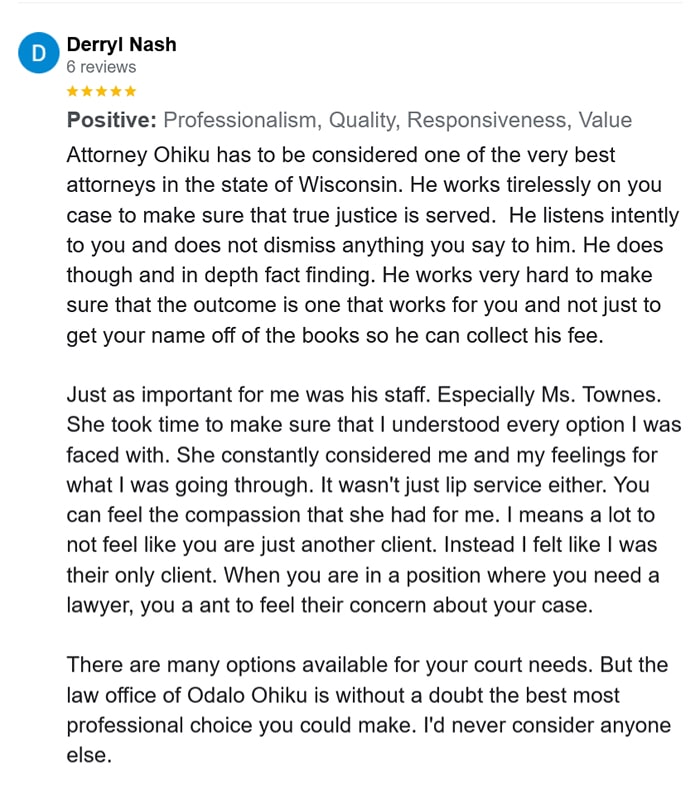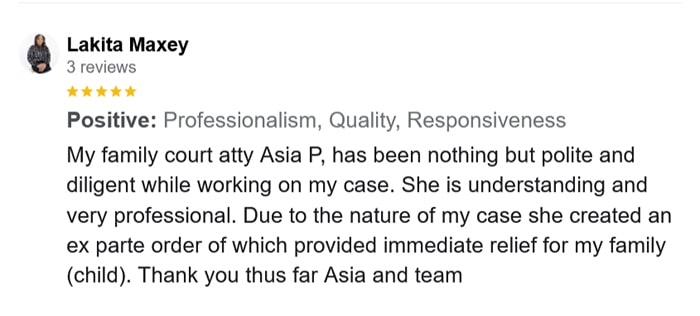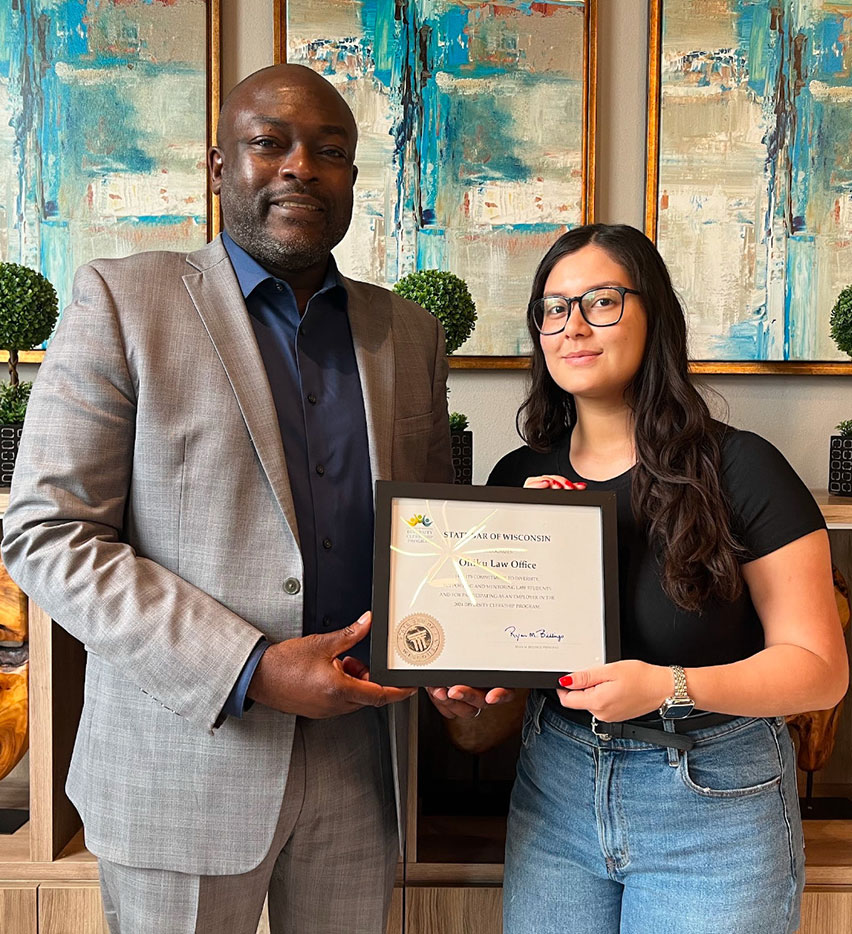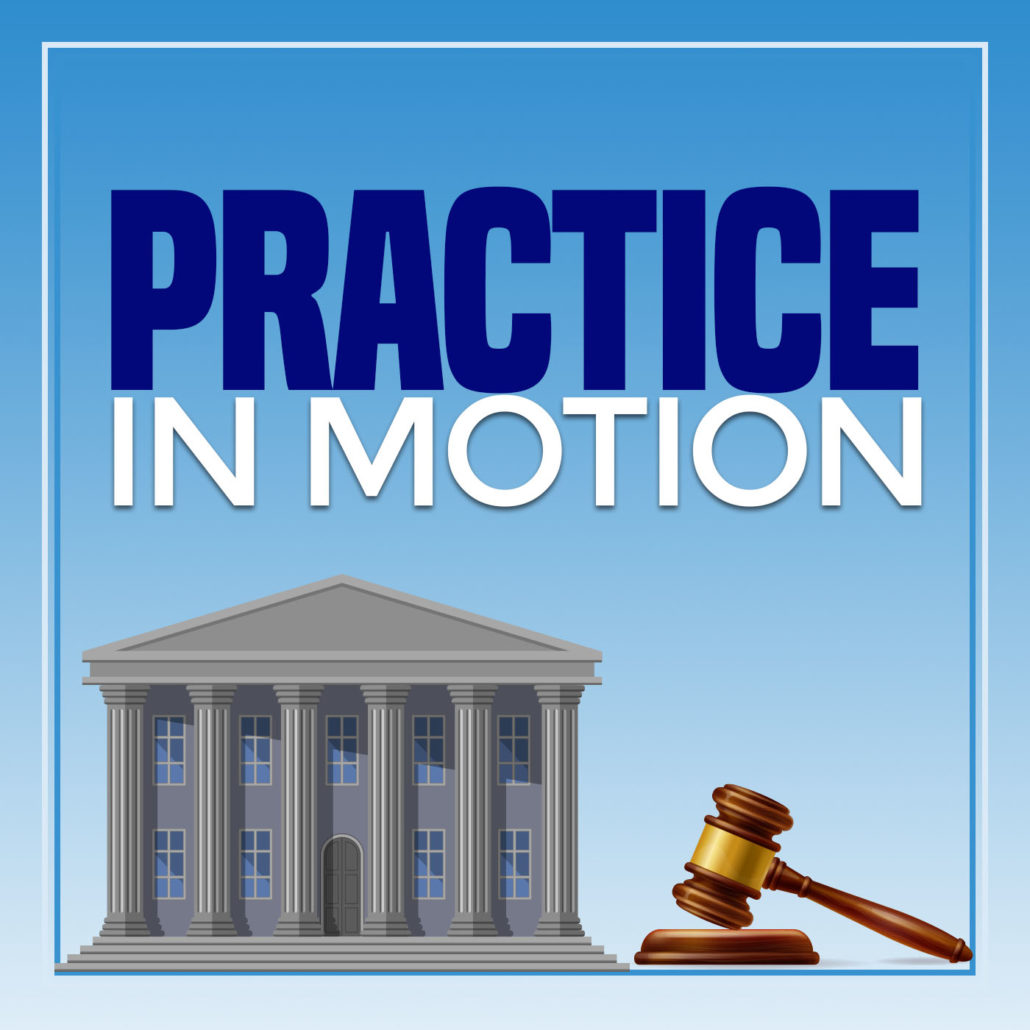 https://www.ohiku.com/wp-content/uploads/2025/01/Protecting-Family-Business-and-Wealth-During-High-Net-Worth-Divorce.jpg
664
996
KVF
https://www.ohiku.com/wp-content/uploads/2020/10/Divorce-Attorneys-Milwaukee.png
KVF2025-01-22 05:10:482025-01-22 05:10:48Protecting Family Businesses and Wealth During High Net Worth Divorce
https://www.ohiku.com/wp-content/uploads/2025/01/Protecting-Family-Business-and-Wealth-During-High-Net-Worth-Divorce.jpg
664
996
KVF
https://www.ohiku.com/wp-content/uploads/2020/10/Divorce-Attorneys-Milwaukee.png
KVF2025-01-22 05:10:482025-01-22 05:10:48Protecting Family Businesses and Wealth During High Net Worth DivorceOHIKU LAW OFFICE
Protecting What Matters Most



Divorce Attorneys | Milwaukee
Our mission at Ohiku Law is rooted in never forgetting the client. Guided by these core principles, we provide strategic legal representation utilizing a collaborative approach between attorney and client. We have the knowledge and compassion to mitigate your anxieties about the divorce process, while leveraging the relationships, experience and tenacity to ensure that the things you value are protected.
Your Trusted Milwaukee Divorce Attorney
You have worked hard to build a family, a life, a future. When divorce is on the horizon, you need an attorney with the compassion to empathize with what you are going through and the experience to protect what matters most to you. At the Ohiku Law Office, we are problem solvers and peacemakers, combining extensive knowledge and compassion to address your unique needs and help reduce your anxiety. When you need a powerful advocate, we leverage our decades of experience and strong relationships to put your needs at the forefront. If you’re considering divorce and looking to assemble an expert team, contact Ohiku Law today to find out what we can do for you.
Why Choose Ohiku Law for your Divorce?
You need a divorce attorney with a genuine passion for helping you protect what’s most important: your family, your assets, and your future. High-net worth clients just like you trust experienced attorney Odalo Ohiku to understand and empathize with your unique needs, help you overcome any challenge through extensive knowledge and experience, and tenaciously fight to help you achieve your goals.
You deserve to settle your case in a way that limits stress, conflict, and lasting damage. At Ohiku Law, our focus is on educating you about your rights and options, keeping you informed at every step of the process. We are experts at peaceful negotiation and building solid, respectful relationships with the courts, judges, and our fellow attorneys. We take a cooperative approach, seeking first to negotiate a peaceful settlement and working to avoid the stress and cost of trials wherever possible.
You have worked hard to build a life, nurture a family, and accumulate assets. We care about the well-being of you and your family and understand the nuances of the child custody and placement system to ensure your greatest treasure – your children – come through the process in the best possible way. When it comes to your assets, we effectively employ our knowledge of marital property law and statutes to protect all that you have worked for.
Why should you choose the Ohiku Law Office for your divorce? Because we care about you. Because we are knowledgeable and experienced. Because we will fight to protect what’s important to you.
What Our Clients Have to Say
-
At a time when our family was going down an uncharted territory facing a very difficult task of dealing with the challenges of our loved one facing very serious charges,... read more we began our search for legal representation. The prospect of losing our loved one to the criminal justice system was a reality where our son was facing being charged with two Class C Felonies and potentially serving a maximum sentence of 60-years. Facing such serious charges, we knew that it was crucial in finding the right attorney to not only represent but also believe in our son, recognizing that he was a young man who made a very bad decision but willing to fight to provide him a second opportunity in life. During our very first conversation, we knew Attorney Ohiku was the right person to represent our son. Attorney Ohiku truly embodies, “Caring for the Whole Person”, as from day one he showed true compassion. Attorney Ohiku throughout the entire process was very straightforward, readily assessible and very responsive. It was through Attorney Ohiku’ s hard work, experience and professionalism that ultimately led to one charge being dismissed and that ensured our son received both a fair and favorable outcome. Our family will always be forever grateful for his guidance and dedication. Attorney Odalo Joseph Ohiku is a true blessing.

S Maxwell
I was completely impressed with their professionalism and care. The ambiance here is always inviting and comfortable. From now on this Law office will be the place forever. I can... read more say the best Law office in town. The staff is not only friendly but also highly skilled and treat you like family. I recommend to anyone to go to them for your cases.

Muktar Muktar
Simply extraordinary, professional, and caring!!!

Ryan McNealy
-
Successfully got more serious charges dropped. Very professional. They were court appointed and I believe they did a reasonable job of getting the best outcome for all things considered. I... read more would recommend you consider this group of attorneys.

Harold Wiegman
Thankful for this AMAZING team of professionals! At a time I as a single mom needed help with my son, Attorney Odalo came through for us. One of the best... read more law firms in the city!

DD T
I am very astute in some areas of the law and let's just say "not so much" in others. I was treated well and received the right amount of... read more explanation when it was needed. The help was thorough and efficient. No complaints at all and I've been told I don't shy away from complaining.

Tim Brodersen
-
Attorney Asia Patterson was amazing. She was responsive and professional and went above and beyond to support me. I highly recommend Attorney Patterson and Ohiku Law Offices.

Dominique Samari
TOP TIER EXPERIENCE!! The team at Ohiku Law Firms is a very experienced and capable one!! I have experience with many different lawyers and law firms. Attorneys at OHIKU... read more LAW OFFICE are head and shoulders above the rest. They fought for me like family. Communicated their game plan and got my case dismissed. If you need help with your case, call them.

Khalil Rosser
Tengo el honor de conocer a el señor Odalo Ohiku por muchos años. Es muy amigable y servicial, y alguién en quién confío toda mi confianza. Siempre con la seguridad... read more de acudir a el cuando tengo preguntas y necesito de consejos legales, a el es la primer persona que llamo. Es un exelente abogado, el señor abogado Ohiku, quién siempre sirve a sus clientes cordialmente. Muchas gracias!

jolira7
-
Thank you, Attorney Asia Patterson: For your continuous assistance in filing my paperwork for early termination of supervised release and continuously keeping me updated throughout the whole process. If you... read more are looking for a GREAT Federal Attorney to assist you in your legal matters, I STRONGLY RECOMMEND you reach out to Attorney Asia Patterson. Forever grateful, Ruben Gaona

Ruben Gaona
I LOVE ATTORNEY "O"♥️♥️♥️♥️ HE IS SO CARING AND UNDERSTANDING PROFESSIONAL AND VERY GOOD AT HIS PROFESSION 💯💯..HE REALLY CARES ABOUT HIS CLIENTS!!

THE QUEEN BEE
Highly recommend for any of your legal services! Got my felony case dismissed and gave very clear and understandable communication on the process and what to expect. A powerful... read more team of dedicated professionals 10/10

Christian Millenium
-
Attorney Ohiku has to be considered one of the very best attorneys in the state of Wisconsin. He works tirelessly on you case to make sure that true justice is... read more served. He listens intently to you and does not dismiss anything you say to him. He does though and in depth fact finding. He works very hard to make sure that the outcome is one that works for you and not just to get your name off of the books so he can collect his fee. Just as important for me was his staff. Especially Ms. Townes. She took time to make sure that I understood every option I was faced with. She constantly considered me and my feelings for what I was going through. It wasn't just lip service either. You can feel the compassion that she had for me. I means a lot to not feel like you are just another client. Instead I felt like I was their only client. When you are in a position where you need a lawyer, you a ant to feel their concern about your case. There are many options available for your court needs. But the law office of Odalo Ohiku is without a doubt the best most professional choice you could make. I'd never consider anyone else.

Derryl Nash
Had a great experience! Service was professional and my record was expunged! I would recommend for any of my friends and family.

Samuel Etim
Hands down best defense lawyer I’ve worked with. Stop looking for another lawyer. Your search is over.

Marcus Holder
-
OHIKU LAW OFFICE got my case dismissed. Don't have to worry about a criminal record ruining my future. That's all I wanted. So thankful!!

L T
I had the pleasure to partner with Ohiku Law Office on a legal panel and it was a great partnership! Odalo's office was very responsive and did a great a... read more job of putting together a legal panel to serve our community.

Naomie Kweyu
Odalo J. Ohiku law office and staff are professional, friendly and passionate about the law. The firm works with you the person and not just your case or the outcome... read more that benefits them the most. I recommend 100%!

jermaine baldwin
-
Confident and 100% satisfied with attorney Felicia Owen. I find her to be an excellent communicator who always responds to my inquires and impressed that I was always able to... read more reach my lawyer. I highly recommend her and team OHIKU Law Office! Thanks!

Angel Avila
Outstanding law office! Very helpful, honest, and straight to the point! They get the job done! Highly recommend Ohiku law office. PROFESSIONALS!

Fernando Rodriguez
Attorney Ohiku is an exceptional and relatable attorney, who recently represented me in a visitation court proceeding. During our communications, he and Sue consistently exuded professionalism, compassion, and a thorough... read more knowledge of family law and the legal system. In addition, Attorney Ohiku and Sue provided invaluable and prompt legal services throughout the process. Your dedication to my case is greatly appreciated. Thank you for accomplishing the goal of continued visits with my granddaughter! Warm regards, Sherri Dillon

Sherri Dillon
See More of What Our Clients Have to Say…


















Divorce Info & Blog
 https://www.ohiku.com/wp-content/uploads/2025/01/Protecting-Family-Business-and-Wealth-During-High-Net-Worth-Divorce.jpg
664
996
KVF
https://www.ohiku.com/wp-content/uploads/2020/10/Divorce-Attorneys-Milwaukee.png
KVF2025-01-22 05:10:482025-01-22 05:10:48Protecting Family Businesses and Wealth During High Net Worth Divorce
https://www.ohiku.com/wp-content/uploads/2025/01/Protecting-Family-Business-and-Wealth-During-High-Net-Worth-Divorce.jpg
664
996
KVF
https://www.ohiku.com/wp-content/uploads/2020/10/Divorce-Attorneys-Milwaukee.png
KVF2025-01-22 05:10:482025-01-22 05:10:48Protecting Family Businesses and Wealth During High Net Worth Divorce https://www.ohiku.com/wp-content/uploads/2025/01/Marital-vs.-Separate-Property-Key-Considerations-for-High-Net-Worth-Individuals.jpg
980
1447
KVF
https://www.ohiku.com/wp-content/uploads/2020/10/Divorce-Attorneys-Milwaukee.png
KVF2025-01-22 05:06:232025-01-22 05:06:23Marital vs. Separate Property: Key Considerations for High Net Worth Individuals
https://www.ohiku.com/wp-content/uploads/2025/01/Marital-vs.-Separate-Property-Key-Considerations-for-High-Net-Worth-Individuals.jpg
980
1447
KVF
https://www.ohiku.com/wp-content/uploads/2020/10/Divorce-Attorneys-Milwaukee.png
KVF2025-01-22 05:06:232025-01-22 05:06:23Marital vs. Separate Property: Key Considerations for High Net Worth Individuals https://www.ohiku.com/wp-content/uploads/2025/01/Ensure-financial-security-in-high-net-worth-divorces.-Discover-legal-tactics-for-asset-protection-and-post-divorce-wealth-preservation.jpg
427
640
KVF
https://www.ohiku.com/wp-content/uploads/2020/10/Divorce-Attorneys-Milwaukee.png
KVF2025-01-22 05:01:242025-01-22 05:01:24Wealth Preservation and Legal Considerations During High Net Worth Divorces
https://www.ohiku.com/wp-content/uploads/2025/01/Ensure-financial-security-in-high-net-worth-divorces.-Discover-legal-tactics-for-asset-protection-and-post-divorce-wealth-preservation.jpg
427
640
KVF
https://www.ohiku.com/wp-content/uploads/2020/10/Divorce-Attorneys-Milwaukee.png
KVF2025-01-22 05:01:242025-01-22 05:01:24Wealth Preservation and Legal Considerations During High Net Worth DivorcesFrequently Asked Questions
Divorce Law FAQs
What are the grounds for divorce in Wisconsin?
In the State of Wisconsin, there is only one official justification for divorce: that the partners cannot work out their differences, which is legally stated as the marriage being “irretrievably broken.” Even if only one spouse wants the divorce, it is common for the judge to grant it on these grounds.
If you have questions about divorce or are looking for a divorce attorney in Milwaukee, give Ohiku Law a call today.
What is the difference between a divorce and a legal separation?
Divorce means the marriage is legally ended, leaving the former spouses free to marry again. A legal separation means the partners are still married, though they go through some of the same processes as divorce, such as division of property and creation of a child custody agreement. After one year, either spouse may apply for the legal separation to be elevated to a divorce or, if the spouses reconcile, can file to nullify the legal separation.
Reasons spouses may seek legal separation over divorce include religious beliefs, financial issues, or for retention of medical benefits.
What is an annulment?
An annulment legally ends a marriage deemed invalid from the outset. Reasons for annulment of marriage include one spouse being underage, the inability of one or both spouses to consummate the marriage, or the marriage having taken place as a result of coercion or threat of force.
For questions about annulment and whether it’s appropriate in your situation, or to find an experienced divorce lawyer in Milwaukee, contact Ohiku Law.
How does either spouse start a divorce action?
A divorce proceeding typically starts with the filings of a petition for divorce, which is an outline of the history of the marriage and preferred outcome, and a summons indicated the other party has 20 days to respond to the filing.
In certain cases, the court rules that temporary orders must be issued outlining ground rules the spouses must follow until the culmination of the divorce proceedings. Two documents must be filed to issue temporary orders: an “affidavit for temporary relief,” which outlines temporary child custody and placement arrangements, and an “order to show cause,” which indicates the date and time of the hearing with the family court commissioner, who will issue temporary orders.
The spouse who files the divorce petition is called “the petitioner,” with the other spouse being “the respondent.” Together, they are referred to as “parties” to the divorce action.
How does the court decide who gets custody and physical placement of a child?
“Custody” refers to the person or persons who hold legal power to make decisions on the child’s behalf, such as school placement, health care, religious upbringing, etc. When deciding custody, the court will start from the assumption that joint legal custody between the two parents is what is best for the child. The court will deviate from this standard in cases of violence in the marriage, child abuse, and other serious considerations.
“Physical placement” means the agreement reached by both spouses as to the amount of time the child lives or spends time with each parent. Most spouses, often with the guidance of their divorce lawyer, are able to reach a physical placement agreement without the intervention of the court system. This is the best-case scenario as a respectful agreement between both parents will make the divorce transition much easier on the child.
Should the spouses not come to an agreement, they will be referred to family court for counseling. If they still cannot reach an agreement, the judge overseeing the case will make a physical placement decision. When this happens, the judge uses all the information they have to make an informed, thoughtful decision based on what is in the best interest of the child. The court will also appoint an attorney to represent the child themselves, called an “attorney ad litem.”
How does the court determine child support payments?
The amount of child support depends on a number of factors. If a parent has physical placement of their child or children less than 25% of the time, the court will make a child support judgment based on a percentage of that parent’s pre-tax income. Though a court reserves the right to deviate from the standard in certain cases, in general, the percentages are 17% for one child, 25% for two, 29% for three, 31% for four, and 34% for five+ children.
When parents have “shared placement” of the child, meaning each lives with the child for 25% or more of the time, it is up to the courts to come up with an appropriate child support arrangement. This decision process is complex and based on the income of each parent, how much time they have physical placement with the child, and the standard support percentages outlined above.
In cases where one or both parents are already paying child support from a previous case, the court reserves the right to base the new child support judgment on an adjusted gross income number. If the court finds that one or both parents are not fulfilling their responsibility, they reserve the right to base the child support payments on earning capacity rather than actual gross income. Any and all adjustments to a child support payment schedule must be made by the court itself.
How does the court divide property?
In divorce proceedings, the majority of a couple’s property is divided between the two parties. Exceptions include inheritance and gifts from third parties, though these may also be subject to division in a divorce settlement.
The parties and their divorce lawyers attempt to come to an agreement about how property should be divided but, if they cannot come to a final agreement, the court makes these decisions. When deciding how to divide property between parties, the court starts from the belief that equal division of property is fair and proper, but may deviate from this depending on:
- Marriage length and spousal contributions to the marriage
- Age and health of the spouses
- The value of property owned by one party coming into the marriage
- The value of property unable to be divided by the courts
- Earning capacity of both partners
- Tax consequences
- Other relevant factors
What if my spouse and I can’t reach an agreement?
In the event that you and your partner cannot reach an agreement through mediation, your divorce case will go to trial. Cases like this can quickly become time-consuming, costly, and emotionally challenging. If you get to this point, it is in your best interest to hire an experienced divorce attorney who can support and guide you through the process.
How long must I live in Wisconsin before filing for divorce?
The State of Wisconsin requires a person filing for divorce (the petitioner) to reside in the state for at least 6 months and in the county where the divorce petition is filed for at least 30 days.
Do you provide divorce mediation services?
Yes. Divorce mediation is another great options for couple considering divorce. Click here to learn more about our divorce mediation services in Milwaukee.
Marital Property Law FAQs
What is Wisconsin’s Marital Property Act?
Wisconsin’s Marital Property Act was passed in 1986 and acknowledges that marriage is a partnership between equals, even if one spouse earns more than the other. Therefore, this act deems that, with certain exceptions, any property acquired during a marriage belongs equally to both spouses.
There are advantages and disadvantages to this law. Advantages include the right of the lesser-earning or unemployed spouse to have access to credit and the fact that both spouses have the ability to bequeath assets.
What does “marital property” mean?
Marital property includes, with some exceptions, all assets acquired after a certain date – the “determination date” – which can be either the date of marriage, the date when both became residents of Wisconsin or January 1, 1986, when this law was passed.
“Survivorship marital property” are assets that, when one spouse dies, pass directly to the surviving spouse as opposed to passing to a named beneficiary under a last will and testament. An example of this is a home titled to both spouses (and only them).
“Deferred marital property” is a complex topic, but generally applies to assets that would be considered marital property but were gained before the spouses’ determination date. Under Wisconsin’s Marital Property Act, a surviving spouse has certain rights to assets considered deferred marital property.
I’m married – can I still retain property that is mine alone?
The short answer is yes, you can still retain individual property once you are married. In most cases, this is property that you owned prior to the marriage. Other types of individual property include personal gifts and inheritance. An asset that is considered individual property is completely owned and controlled by that individual. One important note: all individual property must be documented in a way that makes it clear that it belongs solely to that individual, otherwise it is considered marital property.
Can individual property become marital property unintentionally?
Yes. Throughout the duration of a marriage, what was once individual property may become blended with marital property and, under Wisconsin’s Marital Property Act, may inadvertently become marital property unless carefully recorded.
A simple example is a personal savings account. Say you had a savings account before you were married and continued to contribute to the savings account after marriage. If you contribute portions of the income you earn during the marriage (which is considered marital property), the account becomes mixed property. As you move forward earning interest and withdrawing money from the account to pay for joint expenses, it becomes extremely difficult to draw the line between the amount in the account that is individual property and what is considered marital property.
Another example: say you owned 200 shares of stock before marriage. You purchase no additional shares but the stock grows in value over time. That stock and any additional value it made are individual property.
Once again, if you want to retain individual property after marriage, be sure to keep detailed records that clearly indicate your ownership.
How is credit affected by Wisconsin’s Marital Property Act?
The relative benefits or risks of the Marital Property Act on one’s credit largely depends on whether a couples shares the same values and goals.
The Marital Property Act allows the lesser or non-earning spouse access to credit based on the value of all marital property, including the income of the higher-earning spouse. Debts incurred by one spouse during a marriage are also considered the responsibility of both spouses, meaning creditors can collect on not only the individual debtor’s property but all marital property.
If you and your spouse are not on the same page when it comes to credit, you may consider a marital property agreement, which limits a spouse’s obligation for the other’s debts. However, you must share a copy of this agreement with a creditor before taking out lines of credit.
How does the Marital Property Act affect my estate plan?
When you pass away, your “estate” will comprise one half of all marital property plus any individual property you owned. It is up to you to choose who will acquire your estate after your death. Where this gets complicated is if one spouse wishes to leave a tangible asset, such as a family home, to a certain beneficiary then passes away while the other spouse is still living. In that case, the surviving spouse would co-own the home with whomever the other spouse dictated as a beneficiary. It is worth it to get on the same page with your spouse about who will benefit from the marital property once you pass away.
What if I don’t have a will?
If you do not have a will, your entire estate will pass on to your spouse. An exception to this is if you have children from a prior relationship. In that case, your surviving spouse inherits half of your marital and individual property and your children (whether from your previous or current relationship) inherit the rest.
How does this law impact life insurance and retirement benefits?
If you have paid into life insurance and retirement both before and during a marriage, certain formulas are in place to calculate what should be considered marital and individual property. If you’ve named beneficiaries on these accounts, they will pass directly to the beneficiary rather than through a will. Be mindful that a spouse may still have a claim to part of your life insurance’s death benefit even if you name a different beneficiary, such as children from a previous relationship.
A spouse has the right, under the Marital Property Act, to half of the deferred retirement benefits of the other, but is not allowed to will these benefits away if they pass away first. In this case, the surviving spouse retains all of their own deferred retirement benefits.
Can one spouse gift assets that are considered marital property?
If a spouse’s name is on the title of something considered marital property only if that spouse’s name is on the title and the value is less than $1,000 or another “reasonable” amount based on the economic position of the couple. If both spouses agree, the gift can be of any amount. If the gift exceeds a reasonable amount and is contested by one spouse, the matter can be settled in court.
What happens if spouses disagree about marital property?
Disagreements happen in every marriage. If you and your spouse disagree about what should happen with assets that are considered marital property and can’t settle them on your own, you can go to court. Here are some common examples:
- As described above, if one spouse gifts marital property exceeding a “reasonable” value to a third party
- Adding or removing one spouse’s name to a title
- Seeking a professional accounting review of your joint financial situation
How does the Marital Property Act affect divorce?
The Marital Property Act is in effect during a marriage and upon the death of a spouse. Other laws come into effect when property is divided as a result of divorce.
Is a marital property agreement right for us?
A marital property agreement is a safeguard if a couple disagrees about matters relating to credit. In this case, one spouse’s debts cannot cause creditors to go after the other’s assets. A marital property agreement is also applicable for couples that want to keep their assets separate or wish to have individual property reallocated as marital property.
Having an experienced attorney on your team can help you make the best decision for you and your spouse when it comes to marital property agreements.
At Ohiku Law, we pride ourselves in providing expert legal advice and services on topics like marital property law, divorce law, family court, and much more. We serve clients in Milwaukee and surrounding communities – give us a call to get started today.

Diversity, Inclusion & Our Community
Diversity is more than a mission statement, mantra or aspiration – at the Ohiku Law, it’s our culture. Diversity is represented in the backgrounds of our attorneys, the languages we speak, and the clients we serve. We are dedicated to promoting an inclusive environment, welcoming individuals of all races, ethnicities, national origins, genders, gender identities, ages, sexual orientations, and disabilities. Our values are not choices we make, they’re who we are.
Service to the community is a vital part of our firm’s mission to care for the whole person. In pursuit of our mission, our firm sponsors an annual Second Chance Expungement Clinic, created to assist eligible individuals with removing criminal convictions from their records. We also sponsor an annual Backpack-to-School event during which our firm supplies backpacks filled with school supplies to elementary school students.
Additionally, Attorney Ohiku mentors aspiring lawyers, sharing and promoting unwavering ethical standards. One way he does this is through participation in the State Bar of Wisconsin’s Diversity Clerkship Program. Through the program, our firm is matched with first-year law students who act as summer law clerks, allowing the clerks to work and think like lawyers under his guidance and support.
 At the beginning of my clerkship at OHIKU LAW OFFICE, I had no experience in Family or Criminal Law and had limited knowledge of what this practice entailed. However, my time with the firm has provided me with valuable hands-on experience, allowing me to tackle numerous projects, apply various aspects of the law, and gain insight into the operations of a small law firm.
At the beginning of my clerkship at OHIKU LAW OFFICE, I had no experience in Family or Criminal Law and had limited knowledge of what this practice entailed. However, my time with the firm has provided me with valuable hands-on experience, allowing me to tackle numerous projects, apply various aspects of the law, and gain insight into the operations of a small law firm.
In Family Law, I have had the opportunity to draft Financial Disclosure Statements and Property Division Worksheets, which have deepened my understanding of key issues in divorce proceedings. I also learned about the role of Guardian Ad Litems (GALs) in family court, drafting letters to GALs and motions to modify placement. In regards to Criminal Law, I have become familiar with the revocation of parole/supervision process. I honed my research skills by identifying factors that judges consider in sentence modifications.
Throughout the summer, the firm’s weekly “Lunch and Learn” meetings at OHIKU LAW OFFICE have been invaluable. These sessions provided a platform for the team to discuss important legal topics related to our cases, allowing me to apply my newly acquired knowledge directly to our work.
Working at a small law firm has emphasized the importance of client communication. From answering the phone, I learned that clients highly value direct communication with their attorney. I contributed by taking messages, scheduling appointments, corresponding with clients, and following up with attorneys to ensure progress.
Additionally, I have utilized my Spanish language skills to translate legal documents and explain complex legal issues to potential Spanish-speaking clients. This ability enabled me to successfully communicate with our Spanish-speaking clients, providing them with a sense of comfort amid their legal challenges. I felt immense pride in helping the firm secure a Spanish-speaking client.
The importance of attention to detail has been reinforced in every assignment I completed. Minor details such as formatting and spelling are as crucial as deadlines and the content of the matter. Beyond learning about the practice of law, I have also learned about myself. I realized the necessity of asking more questions when I do not fully understand an assignment, ensuring that I meet the high standards expected in the legal profession.
Hours
Monday-Friday 8:00-5:00pm
Saturday: By Appointment Only
Sunday: Closed
Contact
OHIKU LAW | Milwaukee Divorce Attorneys
1037 W. McKinley Ave., Ste. 300
Milwaukee, WI 53205
P: (414) 287-0088
Text: (414) 287-0088
Fax: (414) 271-6310
About Us
You are the focus at the Ohiku Law Office. Our mission is rooted in supporting you as a whole person by understanding and working to protect your needs, your interests, and your future. Guided by these core principles, Attorney Odalo Ohiku and his team work as strategic problem solvers and peaceful negotiators to ensure the best possible divorce settlement and outcomes for you. If you are a high net worth individual needing a divorce attorney in Milwaukee or the surrounding area, call Ohiku Law Office today. Serving Clients in Milwaukee, Mequon, Brookfield, Elm Grove, Whitefish Bay, River Hills, and Fox Point.
We have staff fluent in Spanish and Lao/Thai.
Make a Payment
Our Office
Disclaimer
The information contained on this website is not intended to be legal advice. You should consult an experienced attorney for legal advice regarding your unique and particular situation. Contacting Ohiku Law does not create an attorney-client relationship. Please do not send or provide confidential information to our law office until an attorney-client relationship has been established.









